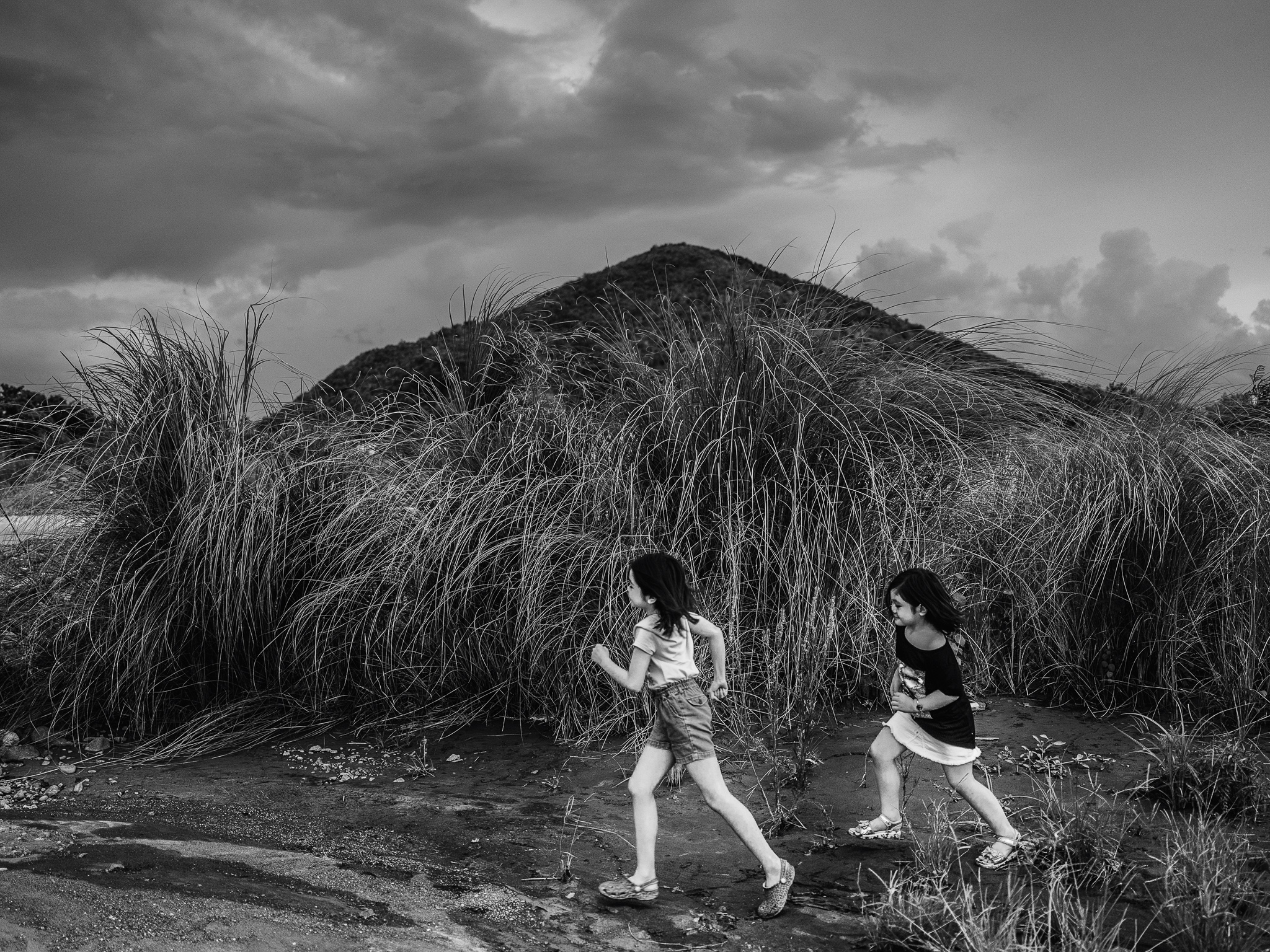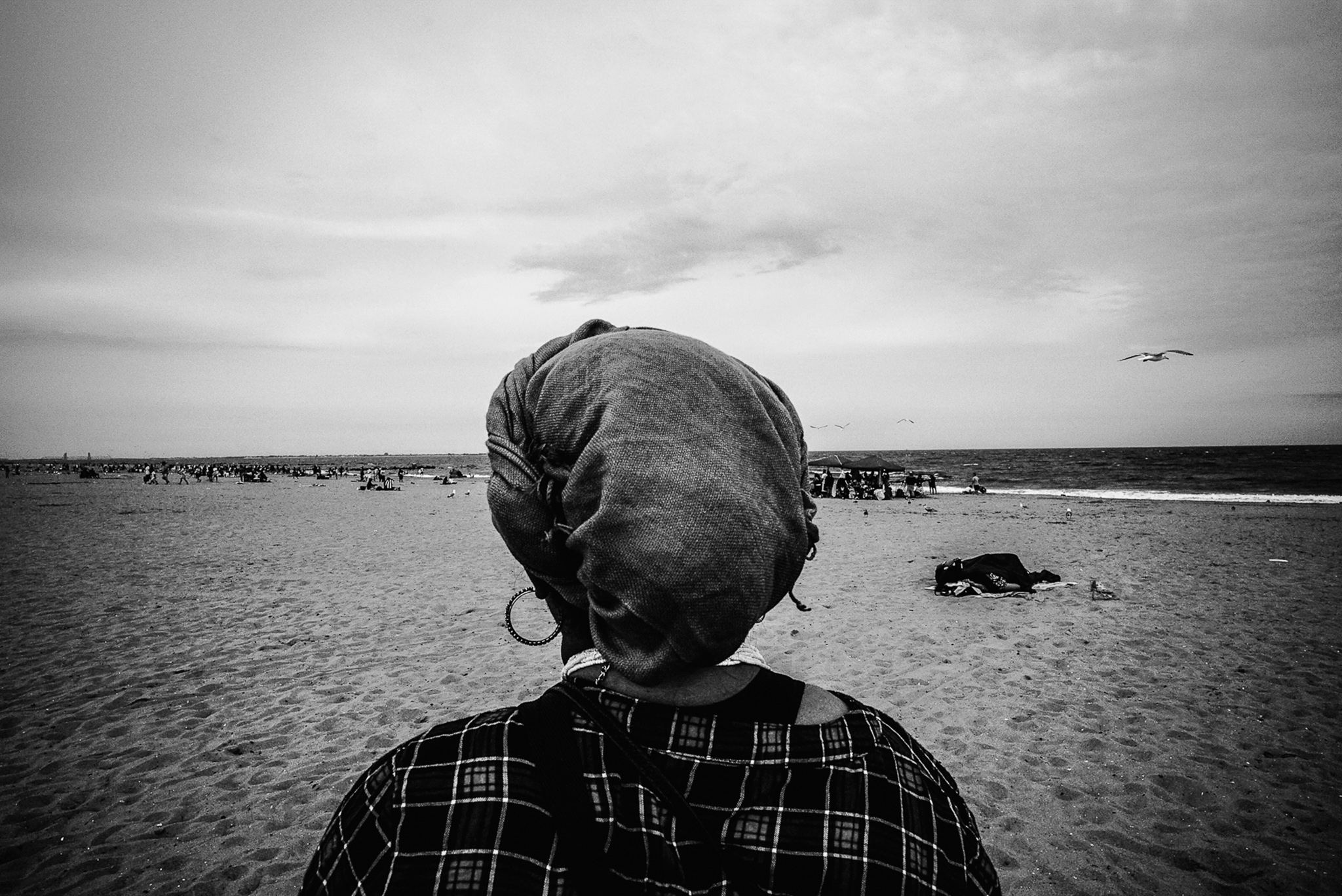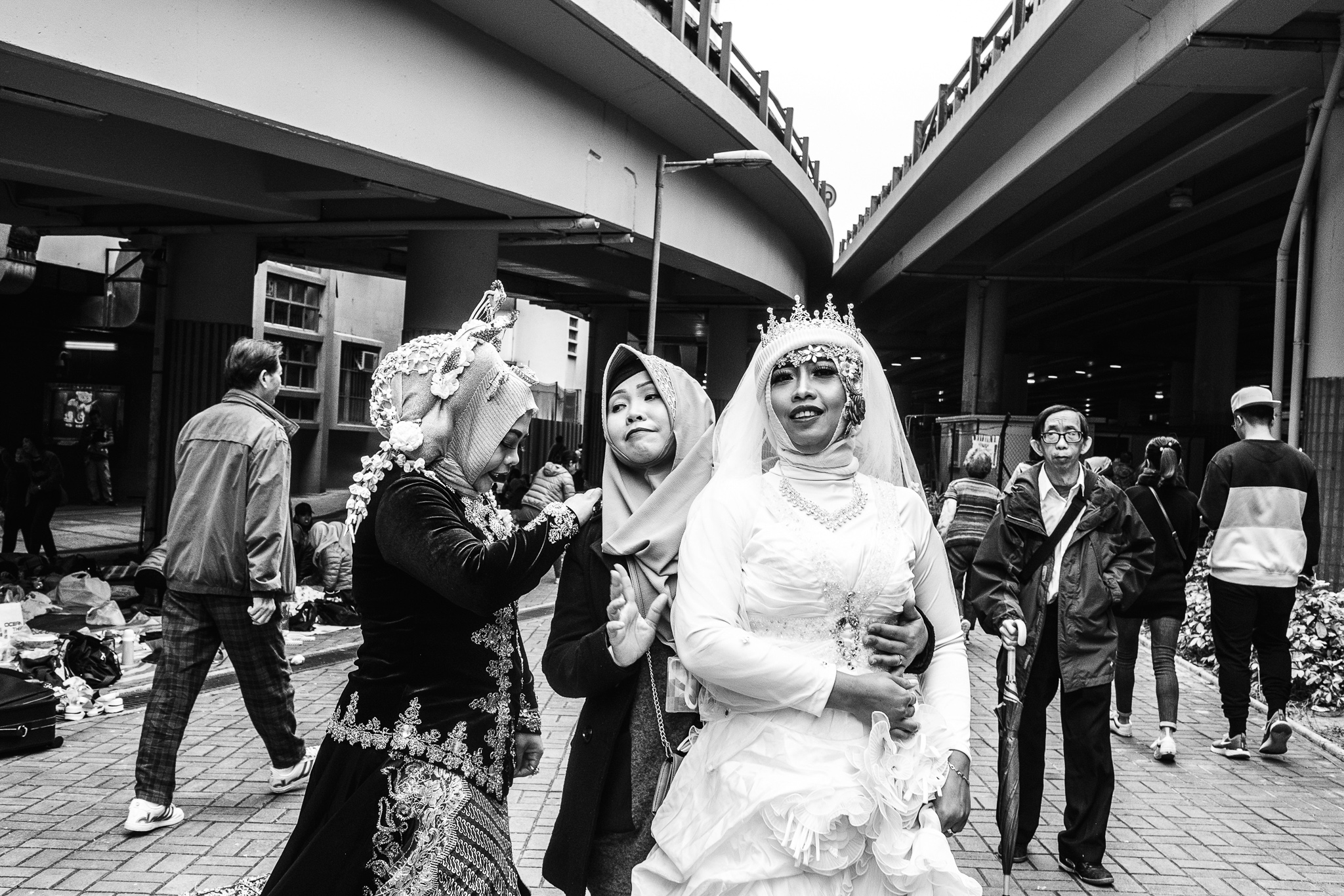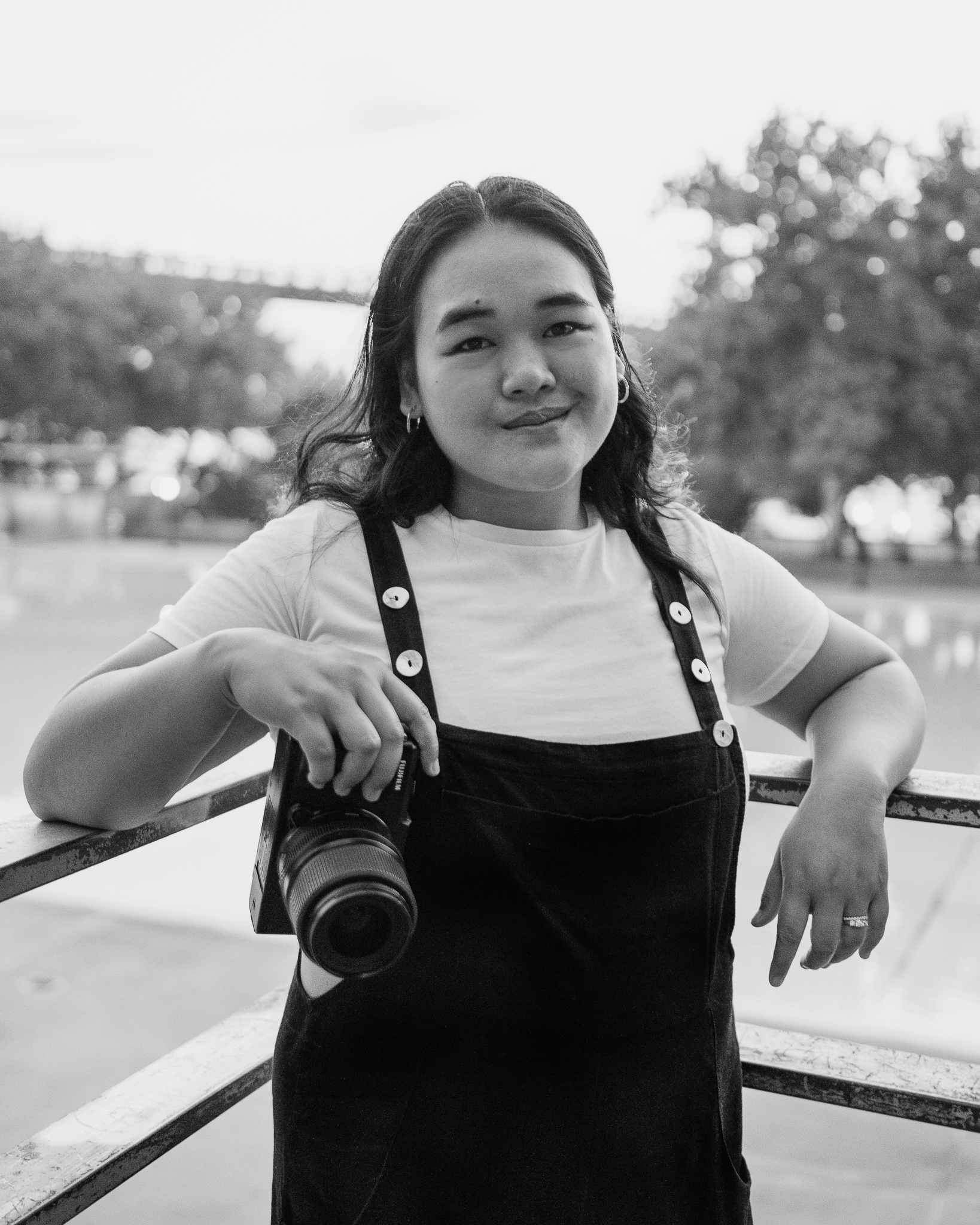Xyza Bacani
The award-winning documentary photographer, storyteller, and all-around artist talks to Jasmine Ting about what it means to live as an ancestor.
It’s a warm, sunny spring day in New York, the kind of day New Yorkers take advantage of by spending much of it outdoors.
“Everyone was saying, ‘Oh, it’s a beautiful day. Let’s go out,” says Xyza Cruz Bacani. “And I’m like, ‘No, I’m just going to read a book.’”
Instead of going out to enjoy the weather, the self-proclaimed introvert opted to stay at home in Astoria, Queens. She seemed perfectly comfortable in a simple black linen jumpsuit, sipping an iced coffee while in the company of Albert Camus’ The First Man and her dog Pokki.
These quiet and easygoing days are a nice reprieve for Bacani. Since moving to New York City, there are days when she starts to feel overwhelmed.
“It’s easy to get lost, the city is so massive,” she tells Vogue. So she’s learned the value of taking time to pause. “Rest is an act of resistance. It’s so important for me, and I’m trying to live by that mantra now. When I’m tired, I have to rest,” she says. “I’m not going to keep hustling and working, pushing the boundaries when my body’s screaming for rest.”
The 35-year-old has been hustling, working, and pushing boundaries since more than a decade ago, when she was given her first DSLR camera.
While working as a migrant Filipino domestic worker in Hong Kong, she’d document her community during her days off. Her black-and-white images gave people an inside look into the largely invisible migrant experience.
Her work, posted on her Facebook page, caught the attention of Rick Rocamora, a Filipino documentary photographer who pitched her story to the New York Times Lens Blog, opening the floodgates of opportunity. By 2014 she was participating in exhibitions, getting interviewed and featured in publications, and winning prizes such as the Human Rights Press Award and the Justice Centre Human Rights Arts Prize—all while still working as a nanny.
It was only when she was named a Magnum Human Rights Fellow in 2015 that Mrs. Louey, her very supportive employer, forced her to resign and fully commit to the role of a photographer. Since then, she’s traveled the globe covering labor migration and human rights issues, bringing under-reported stories to light.
For now, she’s set down her roots in the Big Apple, after New York University offered her a scholarship for a Master’s degree in Art and Politics.

For years, Bacani’s insecurity over her lack of a college degree hindered her from pursuing certain grants, and even the thought of applying to, much more paying for, a graduate program seemed inconceivable. But the universe conspired.
“Even without a college degree, NYU took a chance on me. I am a scholar and grateful to people who paved the way for me to dream, who saw my potential and extended their generosity,” she wrote in an inspiring message posted to social media, acknowledging those who provided both spiritual encouragement and financial support throughout her academic journey.
In the same post, she also wrote the intriguing lines: “I am an ancestor. As a storyteller in today’s world of uncertainty, I need to see myself as an ancestor rather than a descendant. It helps me make better decisions. I honor my ancestors by becoming one.”
Bacani explains, “I wrote that on my one of my final papers, because I think the question was, ‘What is my evolving relationship with art and politics?’”
She began to realize that as a photojournalist, she is never a mere observer. For her 2016 exhibit on the Occupy Hong Kong movement, she had stated, “I was there and took photographs, but I still was not part of it.” Today, she views things more critically: “In some ways I was a participant, because I chose to document those issues.”
Bacani experienced an internal shift, especially during the pandemic. She felt a sense of urgency to produce her art, to document her community, the people she grew up with, and the world.
“It’s not because I just wanted to document [moments.] It’s not because I just wanted to work. It’s more like I felt at that moment the very cliché quote, ‘tomorrow is never promised.’ I felt that because one of my experiences was almost dying of COVID.”
This sense of urgency pushed her to see herself differently not just as an artist, but as a person. “We say that we are descendants. And it’s true. We are. Then, I started looking back to my own ancestors,” she says.

Her grandparents were poor. She recalls that they had no possessions, and no inheritance to give except the cycle of poverty that they, too, inherited as descendants of their ancestors.
“My mother broke that cycle,” she says. “It was my mother who first saw herself as an ancestor, because she was the one who made a very brave, very courageous decision to leave her children, so that she can give us a better life.” Her mother, Georgia, became a domestic helper in Hong Kong. Later, Bacani left school and followed suit at the age of 19.
Now, she takes on the same mentality of taking charge not just of her own destiny but of her descendants, like her young niece and nephew, by setting a better example for them or affecting change that puts their futures on the right path.
And she does so not just behind the camera, but in everything she does—from the way she votes to something as simple as choosing not to jaywalk. “It’s about making better decisions,” Bacani continues. “If we keep thinking of ourselves as just descendants, then we’ll never break the cycle.”
She hopes that her photographs and the rest of her work also challenges the next generation, the future ancestors.
“I cover a lot of human rights issues, and I do hope that when they see it, they will make the world a better place for their descendants as well,” Bacani says. “I hope it will inspire them, that it will spark something inside them to make them move or create or do something about the issues that they care about.”
A year before the pandemic hit, she had her second solo exhibition with the Christine Park Gallery. “We Are Like Air—A Mother and Daughter’s Unlikely Journey,” was a curation of black-and-white photographs from her book We Are Like Air, an intimate portrait of the interconnected lives of migrant workers, including that of her mother.
Just a few weeks after NYU’s commencement festivities—where she shared the stage with Taylor Swift, who received an honorary doctorate without ever having gone to college—Bacani is already in the middle of developing multiple projects simultaneously.
This includes a short film, a novel, a graphic anthology, and a new fellowship grant from the Asian-American Journalists Association New York created in honor of the late photographer Corky Lee.
But all this recognition hasn’t changed her. She’s still the same girl she’s always been, which is, as she puts it, “very kalog and masa and catty if the situation asks for it.” Except, she laughs, “I’m way smarter now.”

This article originally appeared in Vogue Philippines‘ October 2022 Issue
